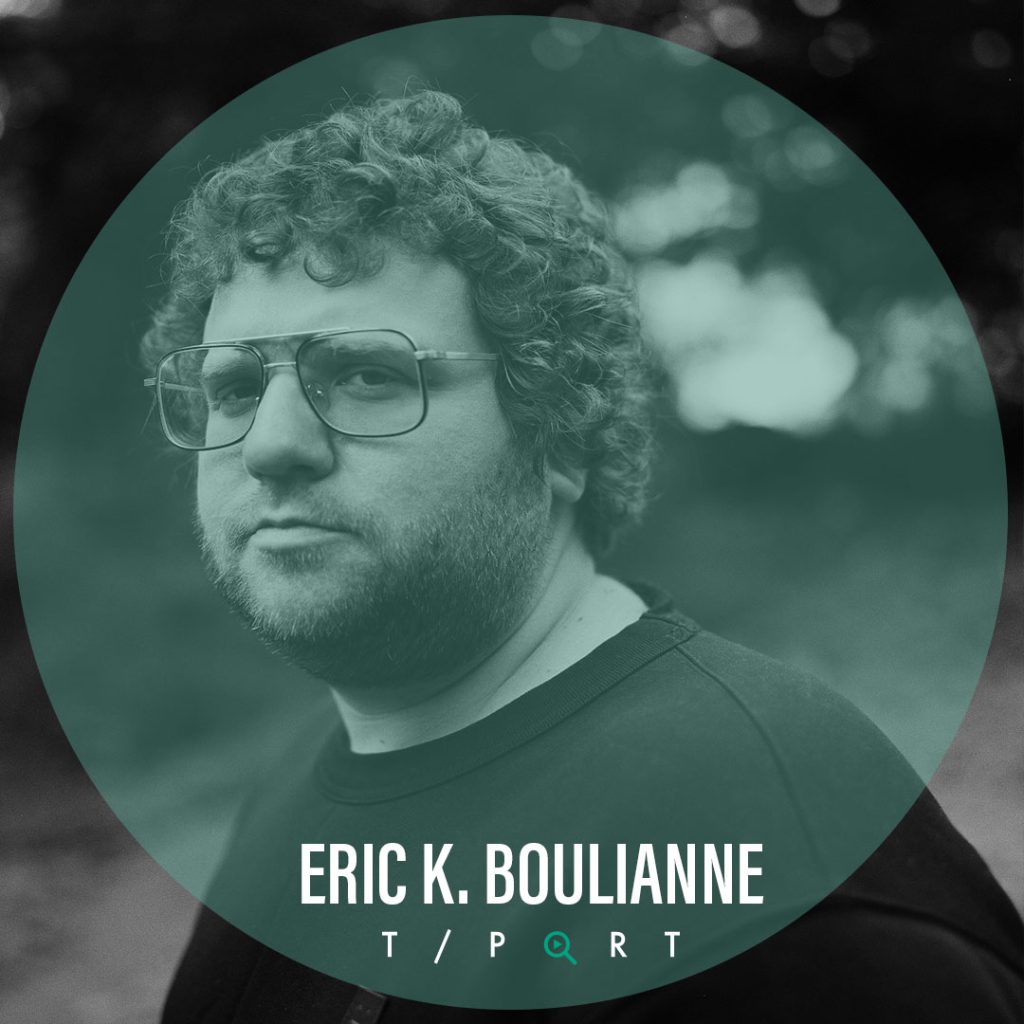
Eric K. Boulianne switched from screenwriting to writing and directing for his short film FAIRE UN ENFANT (MAKING BABIES), and earned the Pardi di domani Best Direction Award BONALUMI Engineering.
We chatted to the director about what it felt like to receive such an honour, as well as getting the lowdown on how he made and starred, and bared all in a deeply personal film.
This year’s Locarno Film Festival may be over but here at T-Port we have their catalogue of selected shorts and winners here for professional subscribers to enjoy.
Hi Eric! Tell us a bit about yourself.
I’m a 38 years old screenwriter from Montreal, Quebec. My short, FAIRE UN ENFANT (MAKING BABIES) was a return to directing after a 10-year hiatus where I was mostly focusing on writing. As of 2023, I wrote or co-wrote 8 features films (amongst them PRANK which was shown at the 31st Critics’ Week of the Venice Film Festival and VIKING which was a part of TIFF Platform programme in 2022) and many short films (amongst them PETIT FRERE, selected at the 53rd Cannes Critics’ Week).
Right now, I’m working on a few screenplays with other directors (Stéphane Lafleur and Émile Gaudreault) and I’m also working on my first feature film project as a director.
Tell us about your short film
The title of the film is FAIRE UN ENFANT (MAKING BABIES), it’s about a couple who are trying to have a baby. Through short scenes we follow the lovers on a 3-year journey punctuated by laughter, tears, challenges, tensions and resilience. It’s a minimalist comedy-drama that explores the crude intimacy of two partners and follows their quest to build a future together.
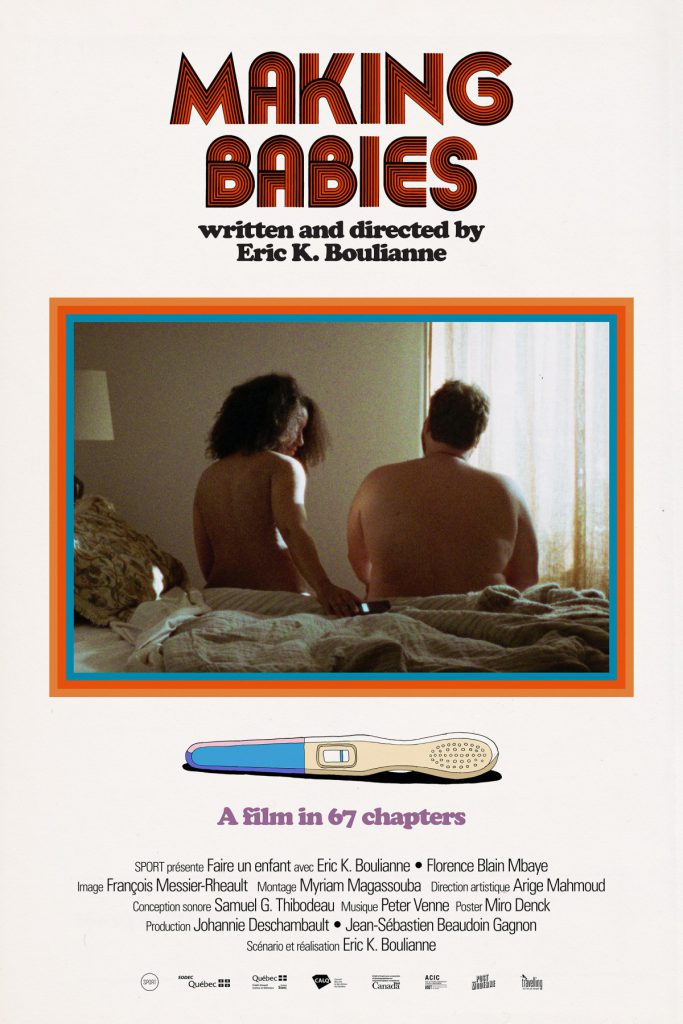
Where were you when you found out about the Locarno selection and how did you react?
I was in the northern city of Iqaluit, capital of the Canadian territory of Nunavut. I was overlooking a big snowy plain. It was a beautiful moment. I cried a bit and I tried to call Florence, the actress in my movie, my producers, and my girlfriend but the reception was bad. So I was alone, up in the north, with a great news that I couldn’t share. I wrote a thank you note to the head of the selection committee, which was mostly “HOLY SHIT” and “FUUUCK” over and over again in capital letters… I was speechless and really proud.
What are you going to do after this and what are your dreams for the future of the film industry?
The prize gave me the confidence to return to directing. So, I’ll work on a feature film screenplay that I could direct.
My dreams for the future of the industry are that people keep making the effort of getting out of their houses and gathering to see original movies in a dark room. I hope everyone in the business can keep telling their stories, without being replaced by robots and with great working conditions. I hope that, even if everything goes to shit, people still see the importance of storytelling.
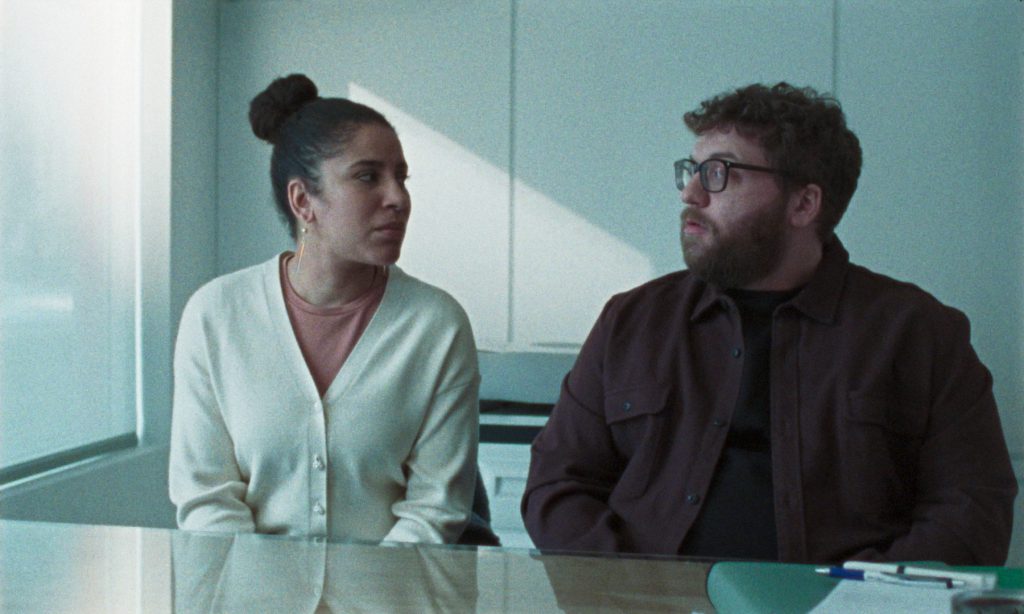
What first sparked the idea to make your film?
My girlfriend and I had a child 5 years ago. It went pretty well. On the first try, my partner got pregnant, but as we were speaking to other couples around us I discovered that a lot of friends were struggling to have a baby. It’s not something that people usually talk about. It was a huge burden for them and it took a big toll on their relationship.
My girlfriend and I will soon celebrate our 20th anniversary as a couple. It was a bumpy ride, but we got there… So, I know about long term relationships and the challenges that come with them.
I wanted to talk about the resilience of love and the “baby making” was the perfect backdrop for this even I didn’t experience it myself.
What were the biggest challenges you encountered during making your film? How do you view them now?
Well, the big challenge was that I was also acting in the movie. As a director, it’s even more demanding. Add a 16mm camera and lots of closed sets because of nudity and you get a pretty complicated shoot. Fortunately, I could count on an awesome team and a great intimacy coordinator. I think that the challenges are what makes the movie interesting now.
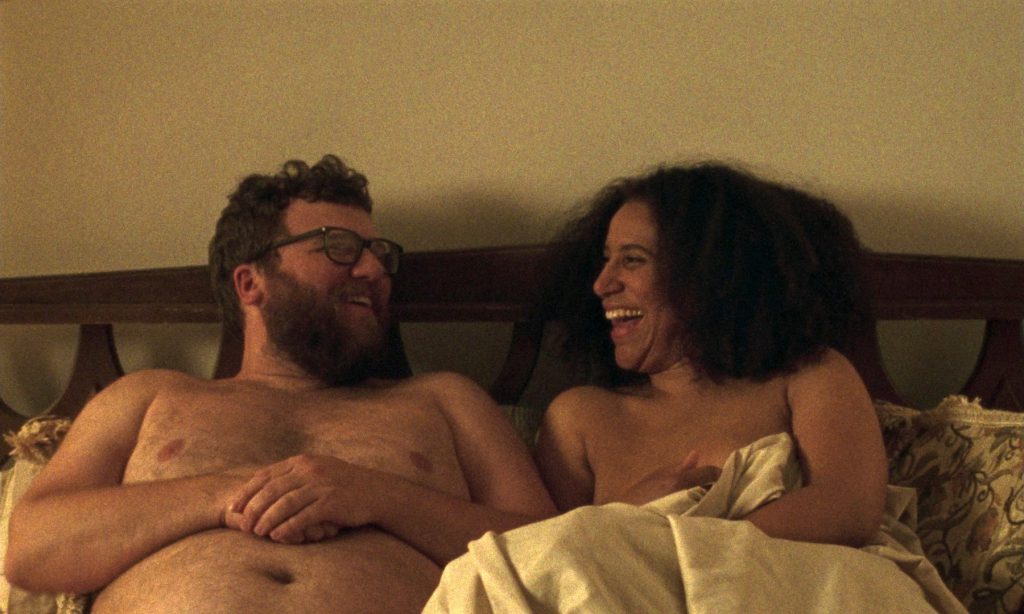
Now that you’ve been through the production process, if you could go back in time and give your former self advice on the process, what would you say?
Well, I would say “buy more 16mm film rolls” because we didn’t have enough for the first block of shooting. I would also say to myself “trust your instincts”… Because, I wasn’t sure I was the right person to play the lead role in my film…
So I had lots and lots of worries and I went through an audition process where I auditioned for my own film. It was after the audition that Florence, the actress to whom I offered the role a long time ago, told me “just play in your film with me. We’ll have fun.” I guess I could’ve slept better if I just had more confidence to begin with.
Tell us three things you learned from the process of making your film
1. Directing a movie is really, really exhausting. So, you better be prepared and engaged emotionally in what you’re going to shoot.
2. For intimate scenes, I think I’ll never work without an intimacy coordinator. Their presence is SO useful. Everyone feels better and it makes the process way easier and safer.
3. When you get uncomfortable because what you’re shooting is too personal and too close to you, when you want to roll up in a ball because you’re thinking “no way people are gonna give a shit, this is too intimate”… Well… That’s the right spot. That’s when it gets interesting. Keep digging for that awkward feeling.
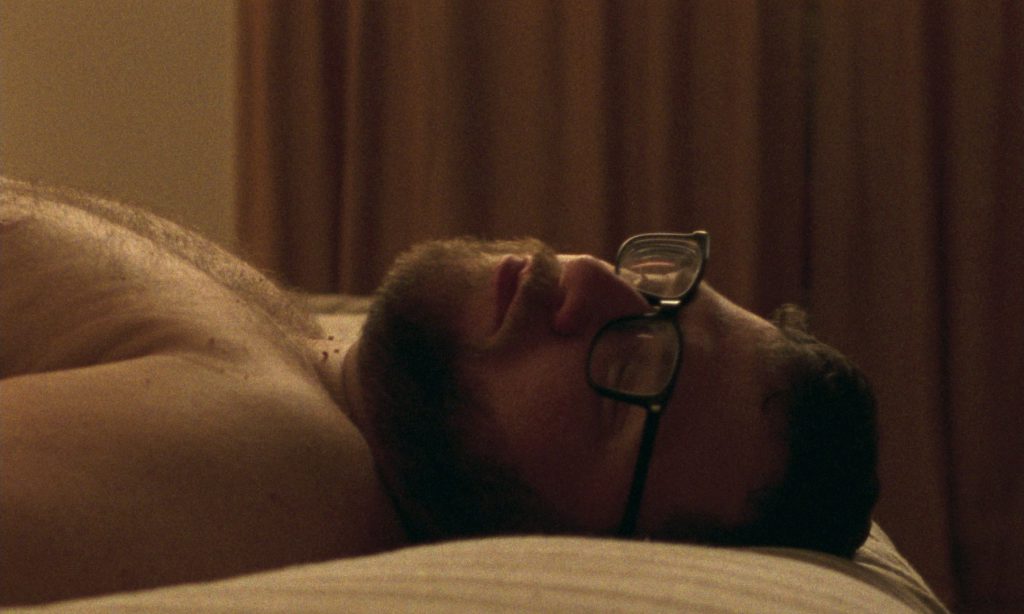
Tell us about the sound choices in your film
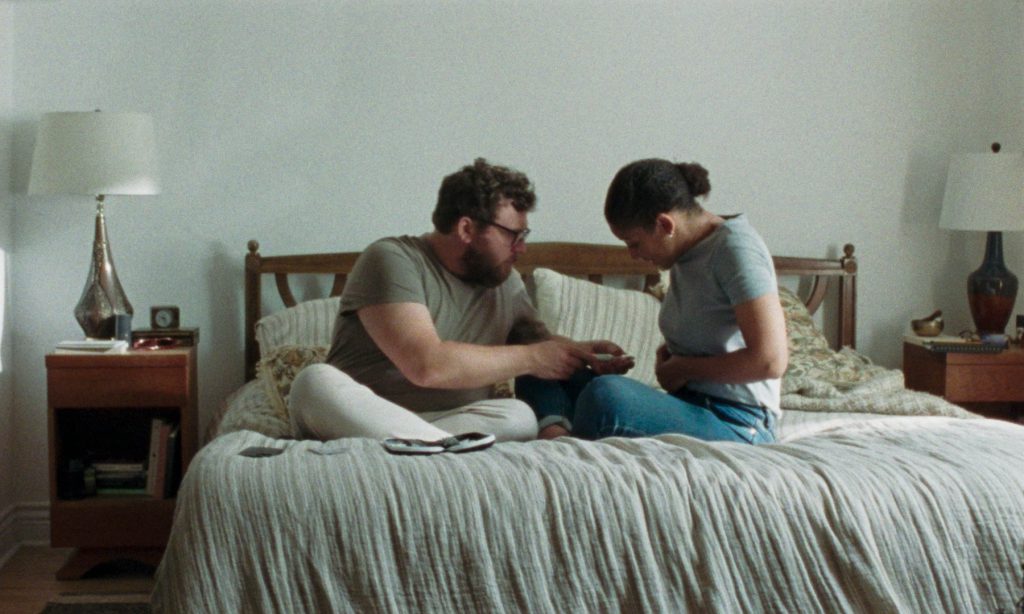
The sound approach was really minimalist. We didn’t have a complicated sound design… It was really naturalistic. The big challenge was to create something interesting because we were usually in a room with two people. So… we were looking for small sounds you could hear in a silent apartment.
For the score, the idea of using Isaac Hayes for the opening titles came during the editing. I just bought “Hot butter soul” on vinyl and I was listening to “Walk on by” over and over. So we tried it and it worked perfectly. It even dictated the 70’s sexploitation aesthetic of the titles and the whole look of the post-production process.
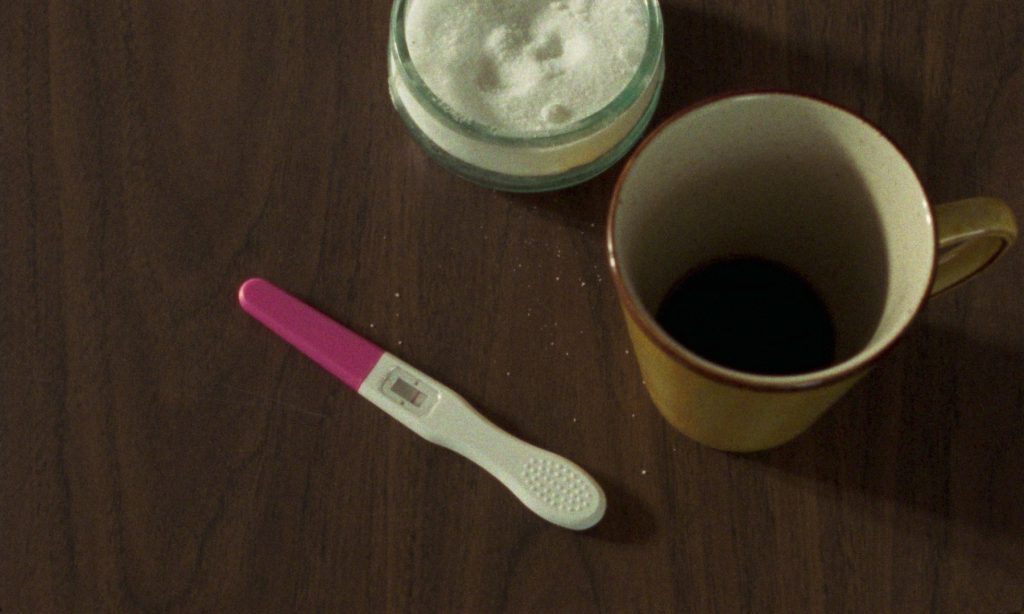
Tell us about the visual choices in your film. What were your main goals and techniques in creating the visual style of your film?
Much like the sound, I wanted a minimal approach to the movie’s aesthetic grammar. I was inspired by bedroom movies like THE MOTHER AND THE WHORE and SCENES FROM A MARRIAGE, and I was looking for something grainy and organic. The 16mm was the choice from the beginning. I didn’t want an overdressed set… Only 2 people, a room, few objects, minimal lighting. So, the 16mm gave the much needed warmth to back up the bare bone approach.
How has your win at Locarno made you look at your future career as a filmmaker?
Well, for a screenwriter, to receive a directing award for my first “professional” project with a budget and a crew… It was totally unexpected. A huge pat on the back. It made me want to explore more personal avenues through filmmaking. So, I’ll probably write less for the others and more for me.
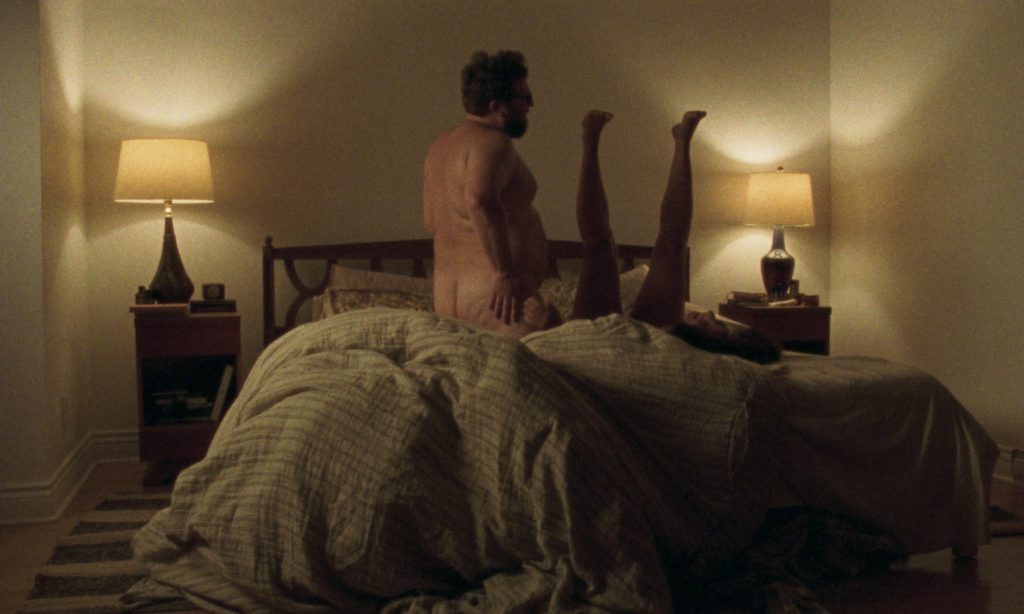
What are the biggest challenges for you, in promoting and distributing your film?
Well, I think that the intimate nature of the project and the nudity is a small challenge. I have to assume the choices that I made (appearing naked in my own movie) every time I watch the film with an audience. But you know, I think it’s important to show atypical bodies on screen and also, I still don’t understand why we see so much female nudity and almost no male nudity… So, I wanted to step up and balance the situation.
What is your advice to filmmakers who are behind you in the process of making and distributing their films? What do you wish someone had told you?
It’s always a tough question… Before this film, I directed 5 or 6 short films that didn’t go anywhere. I guess I just didn’t have the maturity to address the subjects that were dear to me. So, I was just shooting anything… It wasn’t bad, because it gave me experience, but it wasn’t “entirely felt”.
So I guess, the best thing to do is try to shoot something that is close to your heart, that pumps in your chest… Even if it’s uncomfortable. When it’s sincere, it’s always better.
If you were to have infinite resources – walk us through your fantasy film project
Well… Since nobody seems to move on with the project, I would adapt the graphic novel Black Hole. Also, I’d like to do a movie about the Montreal Expos 1994 season.
If you are a film industry professional and would like access to the catalogue and more, find out here how to sign up.
Filmmaker? Upload your short film to T-Port or sign up for our newsletter to get regular updates on the current trends and exciting innovations in the short film universe.
Back to T-Port Blog